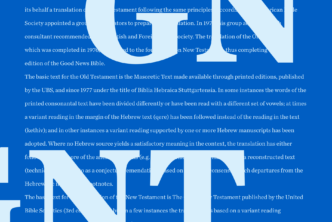Do you find yourself living in a Greek lexicon as you work through the text of the New Testament?
Do you do look for the lexicon to tell you more about how a word is used, and the different contexts in which the word is used?
If you do, chances are you have already invested in what many consider to be the best lexicon for New Testament Greek, BDAG. And chances are that you love it.
Did you know that there is another Greek lexicon, focused on words that are used in the New Testament, that largely complements BDAG?
It is called The Vocabulary of the Greek Testament, put together by James H. Moulton and George Milligan in the early 1900’s.
Now, “The Vocabulary of the Greek Testament” is not a great name because it doesn’t just sound like a lexicon. But it is. And it isn’t a lexicon like BDAG is a lexicon. That is, it doesn’t re-plow the same field of sources (New Testament, LXX, Apostolic Fathers, Josephus, Philo, Greek Pseudepigrapha, etc.) that BDAG and other Greek NT lexica do; instead Moulton and Milligan (hereafter M-M, which is the way BDAG cites it) plow through the ground of the hordes of papyri that were found in the late 1800’s and early 1900’s, focused on papyri usage of vocabulary items that occur in the Greek New Testament (hence the “Vocabulary” name). They’re looking for insight from how these under-utilized papyri use the same words found in the Greek New Testament.
That’s why M-M is largely complementary to BDAG. They aren’t examining the same sources; they’re examining altogether different uses of the same words. And it is M-M‘s insight, from these scads of papyri that have been found and analyzed, that complements BDAG so well — in fact, so well, that BDAG routinely refers the reader to M-M where M-M has pertinent information. What kind of information? Here’s an example that Milligan uses in his introduction:
In what are probably the earliest of his letters that have come down to us, the two Epistles to the Thessalonians, St. Paul finds it necessary to rebuke his converts for walking “in a disorderly manner” (2 Thess 3:11). The word (ἀτάκτως), with its cognates, is confined to these Epistles in the New Testament, and what exactly is meant by it is by no means clear at first sight. Is St. Paul referring to actual sin or moral disorder, or to something less heinous? The papyri have supplied the answer in a striking manner. Among them is a contract of A.D. 66 [P.Oxy.II 275] in which a father arranges to apprentice his son with a weaver for one year. All the conditions of the contract as regards food and clothing are carefully laid down. Then follows the passage which specially interests us. If there are any days during this period on which the boy “fails to attend” or “plays truant” (ὅσας δʼ ἐάν ἐν τούτω ἀτακτήση ἡμέρας), the father has to produce him for an equivalent number of days after the period is over. And the verb which is used to denote playing truant is the same verb which St. Paul uses in connexion with the Thessalonians. This then was their fault. They were idling, playing truant. The Parousia of the Lord seemed to them to be so close at hand that it was unnecessary for them to interest themselves in anything else. Why go to their daily work in the morning, when before night Christ might come, they thought, forgetting that the best way to prepare for that coming was to show themselves active and diligent in the discharge of their daily work and duty.
If you don’t have The Vocabulary of the Greek Testament in your Logos Bible Software library yet (and it presently isn’t in any packages, not even Portfolio) you might want to consider adding it today.





